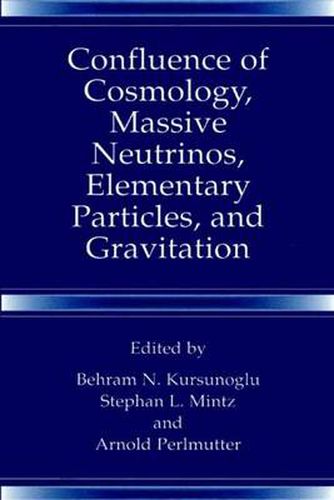Readings Newsletter
Become a Readings Member to make your shopping experience even easier.
Sign in or sign up for free!
You’re not far away from qualifying for FREE standard shipping within Australia
You’ve qualified for FREE standard shipping within Australia
The cart is loading…






This title is printed to order. This book may have been self-published. If so, we cannot guarantee the quality of the content. In the main most books will have gone through the editing process however some may not. We therefore suggest that you be aware of this before ordering this book. If in doubt check either the author or publisher’s details as we are unable to accept any returns unless they are faulty. Please contact us if you have any questions.
Justbefore the preliminary programof Orbis Scientiae 1998 went to press the news in physics was suddenly dominated by the discovery that neutrinos are, after all, massive particles. This was predicted by some physicists including Dr. Behram Kusunoglu, who had apaper published on this subject in 1976 in the Physical Review. Massive neutrinos do not necessarily simplify the physics of elementary particles but they do give elementary particle physics a new direction. If the dark matter content ofthe universe turns out to consist ofneutrinos, the fact that they are massive should make an impact on cosmology. Some of the papers in this volume have attempted to provide answers to these questions. We have a long way to go before we find the real reasons for nature’s creation of neutrinos. Another neutrino-related event was the passing of their discoverer, Fredrick Reines: The trustees of the Global Foundation, members of the Orbis Scientiae 1998, dedicate this conference to Fredrick Reines of the University of California at Irvine. The late Professor Reines was a loyal and active member of these series of conferences on the frontiers of physics and cosmology since 1964. He also sewed as one of the trustees of the Global Foundation for the past three years. Professor Reines discovered the most elusive particle, the neutrino, in 1954. We are proud to say that we recognized the importance of this discovery by awarding him the J.
$9.00 standard shipping within Australia
FREE standard shipping within Australia for orders over $100.00
Express & International shipping calculated at checkout
This title is printed to order. This book may have been self-published. If so, we cannot guarantee the quality of the content. In the main most books will have gone through the editing process however some may not. We therefore suggest that you be aware of this before ordering this book. If in doubt check either the author or publisher’s details as we are unable to accept any returns unless they are faulty. Please contact us if you have any questions.
Justbefore the preliminary programof Orbis Scientiae 1998 went to press the news in physics was suddenly dominated by the discovery that neutrinos are, after all, massive particles. This was predicted by some physicists including Dr. Behram Kusunoglu, who had apaper published on this subject in 1976 in the Physical Review. Massive neutrinos do not necessarily simplify the physics of elementary particles but they do give elementary particle physics a new direction. If the dark matter content ofthe universe turns out to consist ofneutrinos, the fact that they are massive should make an impact on cosmology. Some of the papers in this volume have attempted to provide answers to these questions. We have a long way to go before we find the real reasons for nature’s creation of neutrinos. Another neutrino-related event was the passing of their discoverer, Fredrick Reines: The trustees of the Global Foundation, members of the Orbis Scientiae 1998, dedicate this conference to Fredrick Reines of the University of California at Irvine. The late Professor Reines was a loyal and active member of these series of conferences on the frontiers of physics and cosmology since 1964. He also sewed as one of the trustees of the Global Foundation for the past three years. Professor Reines discovered the most elusive particle, the neutrino, in 1954. We are proud to say that we recognized the importance of this discovery by awarding him the J.